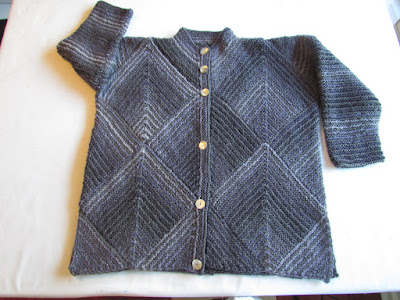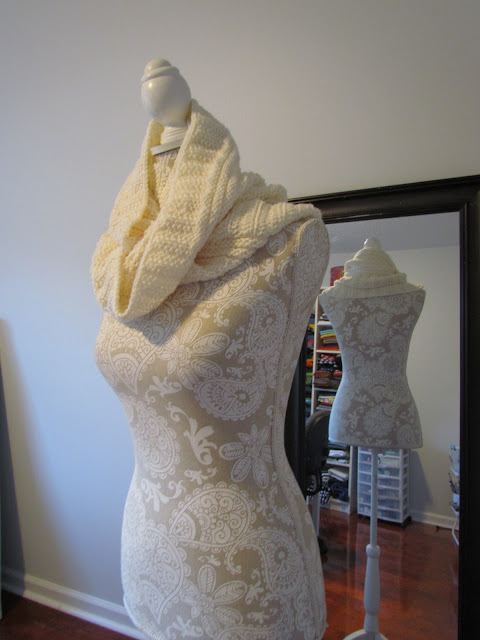I don't usually get political on the blog but this was so amusing and enlightening that I decided I had to share it with you.
Listening to the radio on my way to church Sunday, I heard this except from NPR's On the Media, which tongue in cheek proposed ways that the election could be rigged.
BOB GARFIELD What Trump never explained is how the Democrats were supposed to have pulled off the caper. John Mark Hansen is professor of political science at the University of Chicago. He has studied precisely what would be required to steal a presidential election. John, welcome to the show.
JOHN MARK HANSEN I'm glad to be here.
BOB GARFIELD OK, let's just say that I want to subvert the will of the people and rig a presidential election. Uh, easy peasy, right?
JOHN MARK HANSEN No, not necessarily. You're not going to do it by recruiting yourself and a few friends to vote a couple of times or even three or four or five or 10 times. So you're going to have to -.
BOB GARFIELD Just organize a massive conspiracy is all.
JOHN MARK HANSEN Yeah. For instance, in Pennsylvania in 2016, there were 6.2 million ballots cast. And, you know, suppose that you're willing to kind of cut it close a little bit and you say, well, let's sort of make sure that Biden's going to win by getting him one percent more of the vote. So 62,000 votes. That's a lot of votes.
BOB GARFIELD How do we go about doing that?
JOHN MARK HANSEN One possibility is that you decide you're going to get a thousand of your best friends and you're somehow going to convince them that they should be willing to risk prosecution and imprisonment and the loss of their reputations. You also have to reassure them that out of the thousand people that you've recruited to help you in this effort, nobody's actually going to open their big fat mouth. There are a lot of criminal conspiracies out there that get undone because somebody wants to brag about it or somebody has a guilty conscience or something. So you're going to have to make sure that you can trust and everybody else can trust all thousand of your confederates.
BOB GARFIELD OK, if you want to obsess on details like that, that's fine. I'm not going to stop you. So you're basing this on the idea of having a thousand friends each willing to trump up 62 ballots. But what if instead of doing that, I just get, let's say, 20000 friends to vote once by mail, once in person, and maybe once at another precinct where they used to live one person, three votes times 20000.
JOHN MARK HANSEN You'd have to persuade all 20000 people that they should take the risk of actually casting a second or a third ballot, because the chance of their being detected goes up the more times they vote. So I would think that people would be pretty hesitant to do something like that. In terms of people who are registered in more than one place. I doubt that, you know, 20000 people who are registered in two different places and even there they would risk discovery. And certainly if you're talking about 20000 people doing it, someone is likely to be discovered as having voted in two different jurisdictions.
BOB GARFIELD Now, I know that because people's signatures tend to change over time, mine has certainly mutated, many jurisdictions are being less rigorous about demanding perfect matches. In that environment, you know, can I get any ballot through?
JOHN MARK HANSEN In terms of mail in ballots, the risk is not so much that your signature will not match, but rather that jurisdictions oftentimes will ask for identifying numbers. So in Pennsylvania, you either have to submit your driver's license number, your state ID number, or the last four digits of your Social Security number. And it's getting a hold of those numbers and matching those numbers. It's going to be the problem,.
BOB GARFIELD But it's also easy just to get a thousand driver's licenses, no?
JOHN MARK HANSEN Uh, not so easy.
BOB GARFIELD I must say. I rather resent your negativity. What about rigging the game during the counting process? Like Trump said on Wednesday morning, somehow finding all these votes after the polls have closed. Can't that be done like sneaking in an extra zero or two or moving a decimal point or even substituting computer data with fake counts that I've sneaked in on a thumb drive?
JOHN MARK HANSEN Well, your chances are better, but there are still quite strong safeguards against doing something like that. One is that most jurisdictions allow partisan observers to actually watch as the ballots are being counted and as the ballots are being tallied and as the tallies are being reported to the central office. And they have an opportunity to say, you know, I don't like that. That's not the way that things are supposed to be going. Even if there aren't any partisan observers, you still have the problem of how you're going to report all those extra votes without someone thinking, boy, that's sure an awful lot of votes being reported from that particular jurisdiction. They only usually report 300,000 votes and now they're reporting 360,000 votes. And that's kind of suspicious.
BOB GARFIELD You know, I'm sorry. I just think you're naive because what you don't know is that I am a pretty good coder. I managed to change everybody's phys ed grade at Aaron Burr High School to an A plus. So, why can't I just break into the county system and just have my way?
JOHN MARK HANSEN This is something that election officials have been worried about quite a lot. And so they've invested quite a lot in trying to maintain security. As you're probably aware, in 2016, there were actually some hacker attacks on county election offices or attempts at hacks on county election offices, particularly from Russian sources. And they seem to have been uniformly unsuccessful. So there's been a lot invested in trying to maintain the integrity and the security of the vote reporting system and the vote recording system. But even beyond that, again, how would you necessarily do it in a way that wouldn't appear suspicious? Various jurisdictions, various counties, they tend to vote pretty similarly from year to year. It would really, really be unusual to see a 20 percent change in a vote or an addition of 50000 votes, so you've got the problem of how you're going to do it without someone noticing when it goes up to the next stage.
BOB GARFIELD Look, John, I've laid on the irony with a trowel, and it's probably getting tedious for the audience at this point. So can I just ask you very plainly - the scenario that President Trump and his proxies are suggesting, is it remotely possible to have taken place with the kind of safeguards that each state has built in the election process going back, you know, a century?
JOHN MARK HANSEN No, this would just require, to use Joseph McCarthy's words, a conspiracy so immense as to make it nearly impossible to be detected and really expensive and risky for everybody involved.
BOB GARFIELD That would mean that the president is a liar.
JOHN MARK HANSEN Some people have said.
BOB GARFIELD John, thank you very much.
JOHN MARK HANSEN My pleasure.
BOB GARFIELD John Mark Hansen is a professor of political science at the University of Chicago.













































